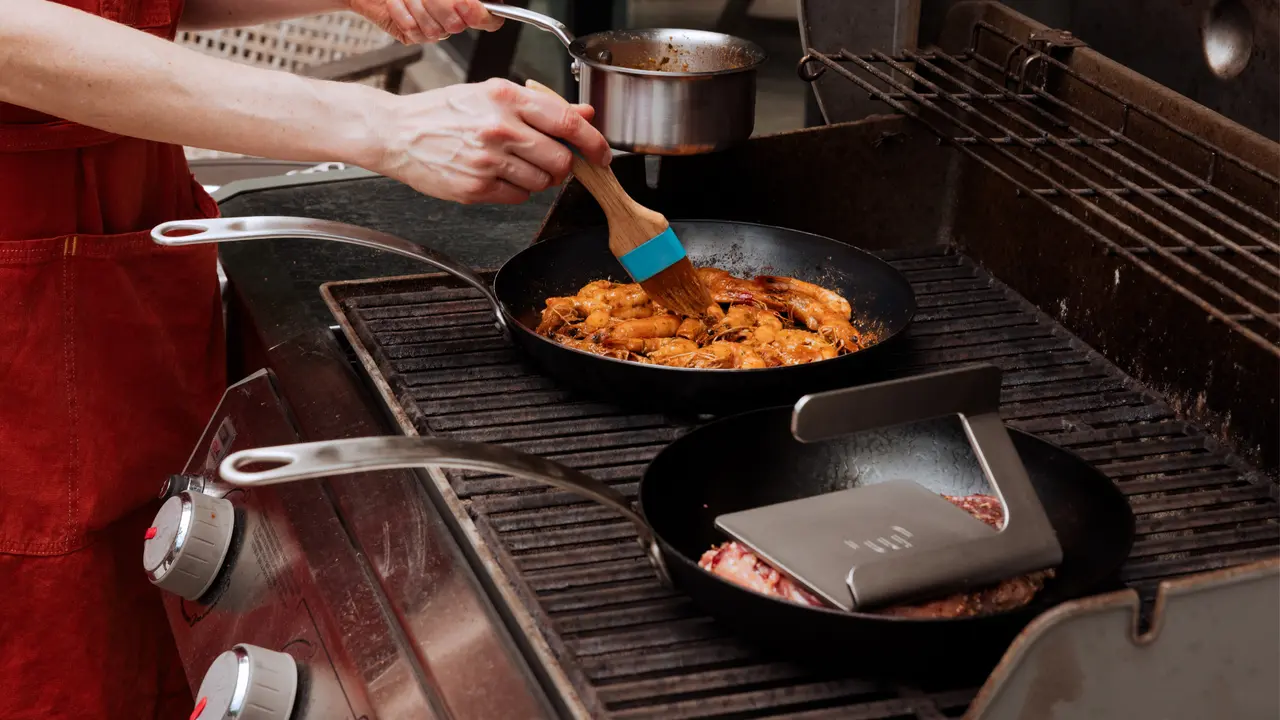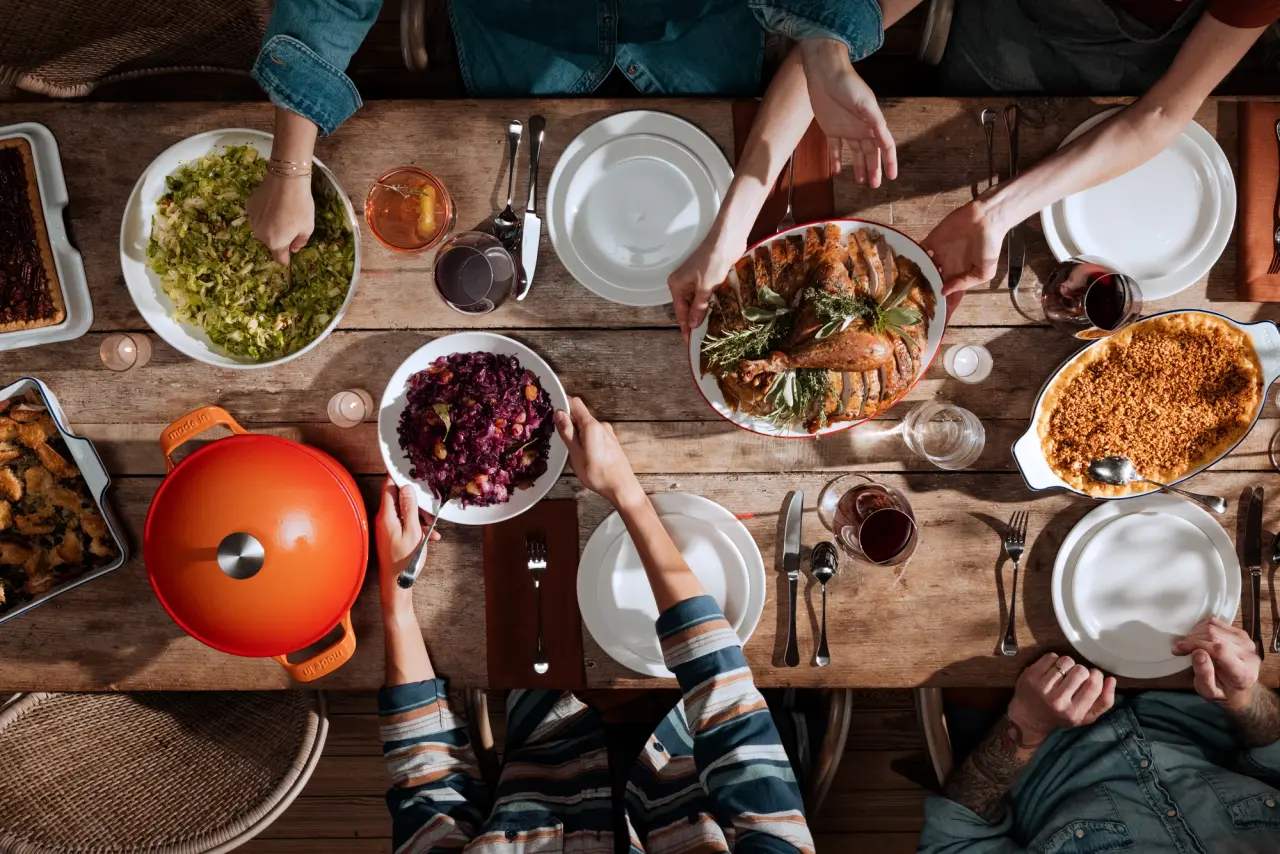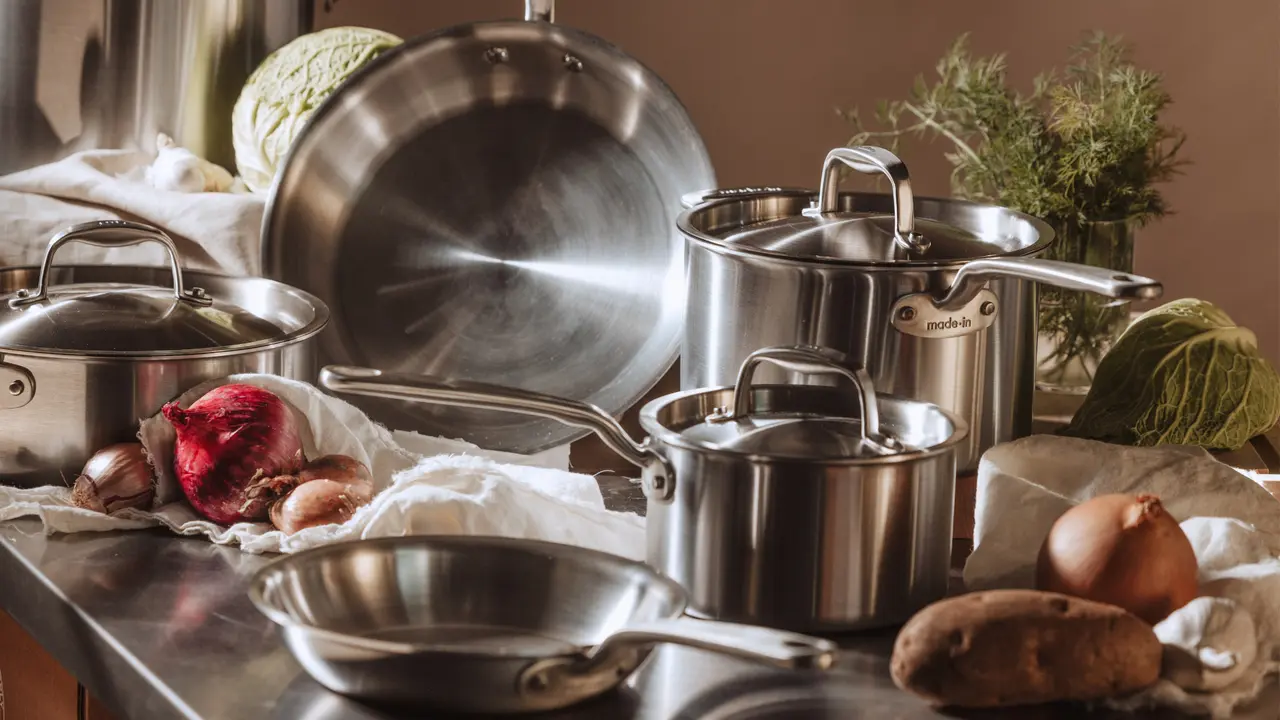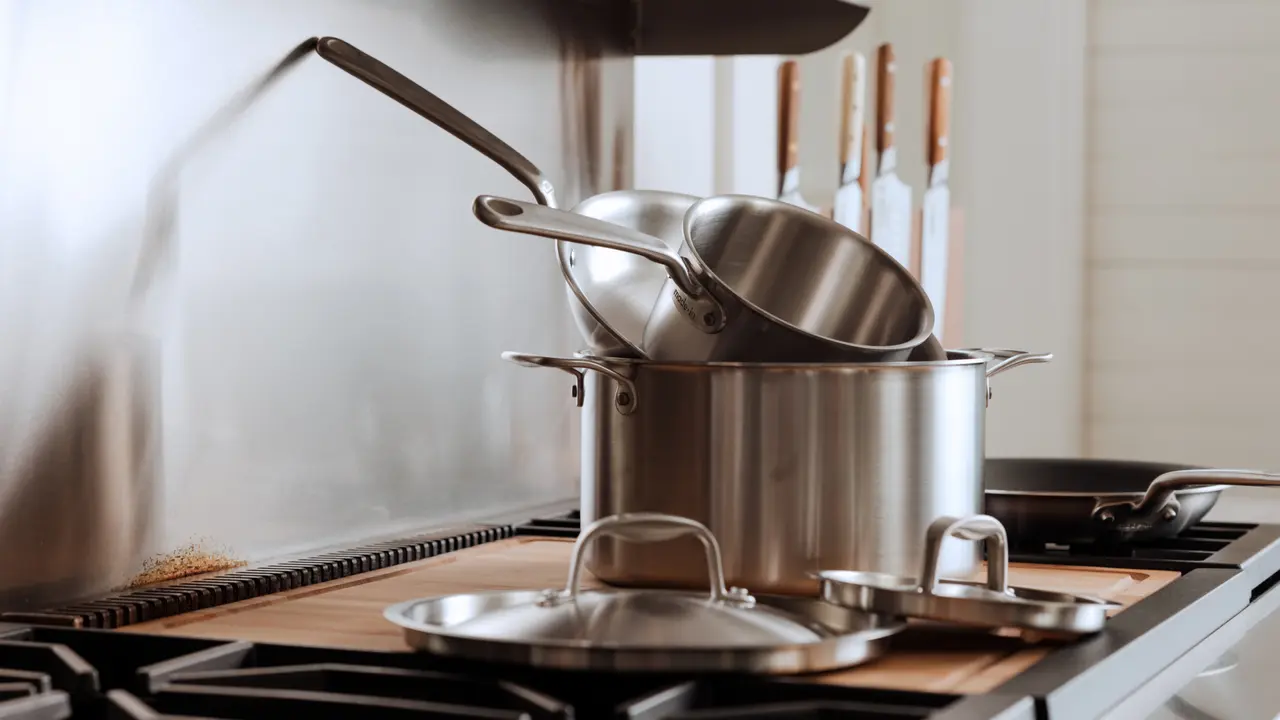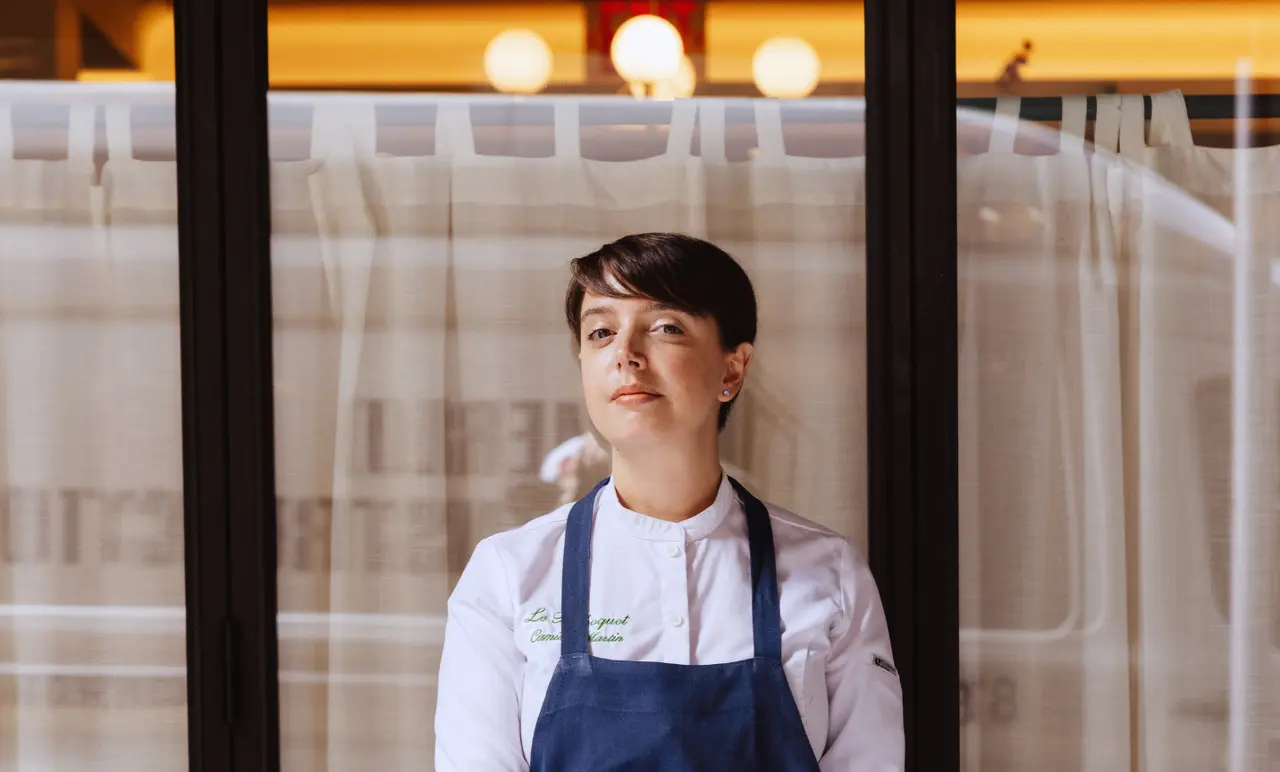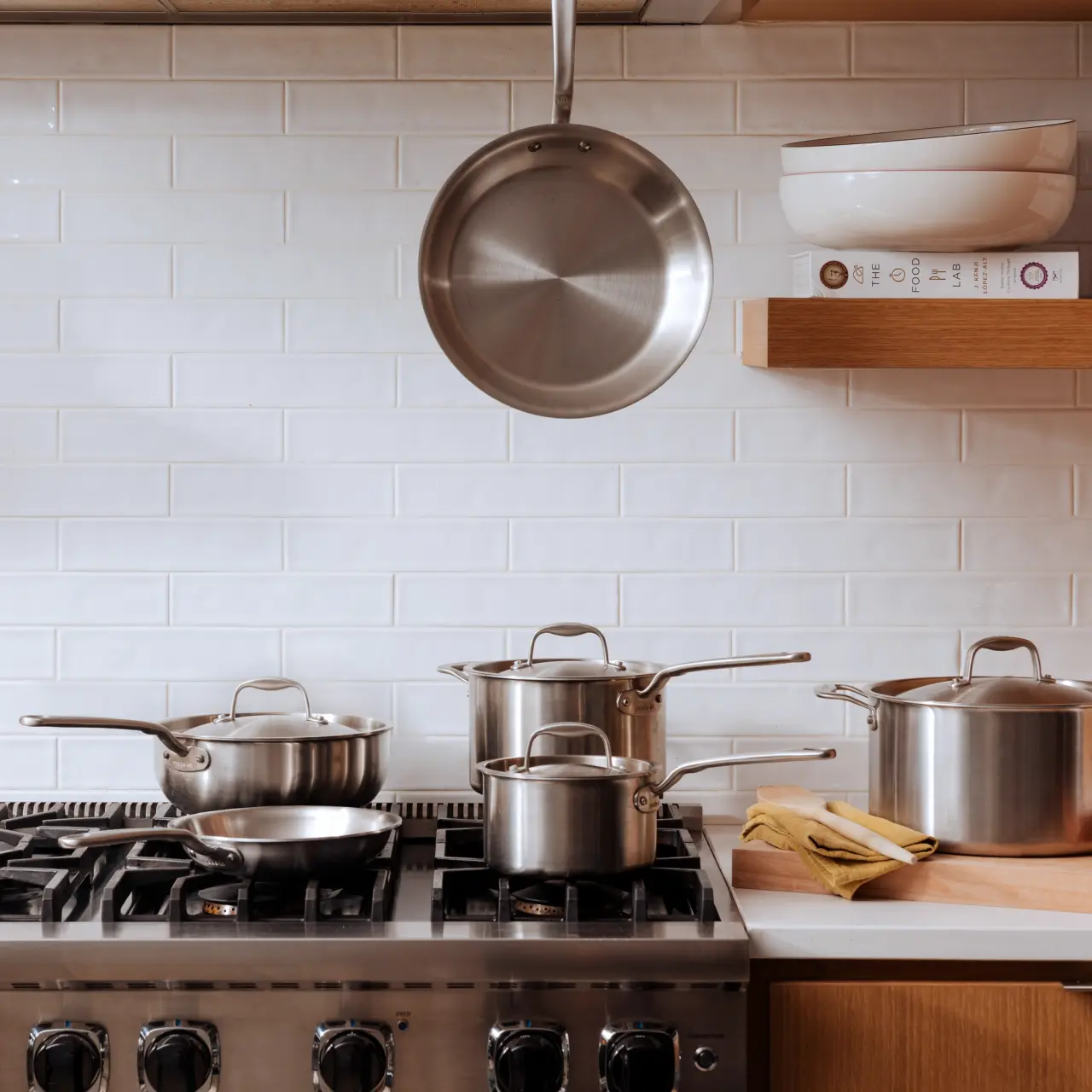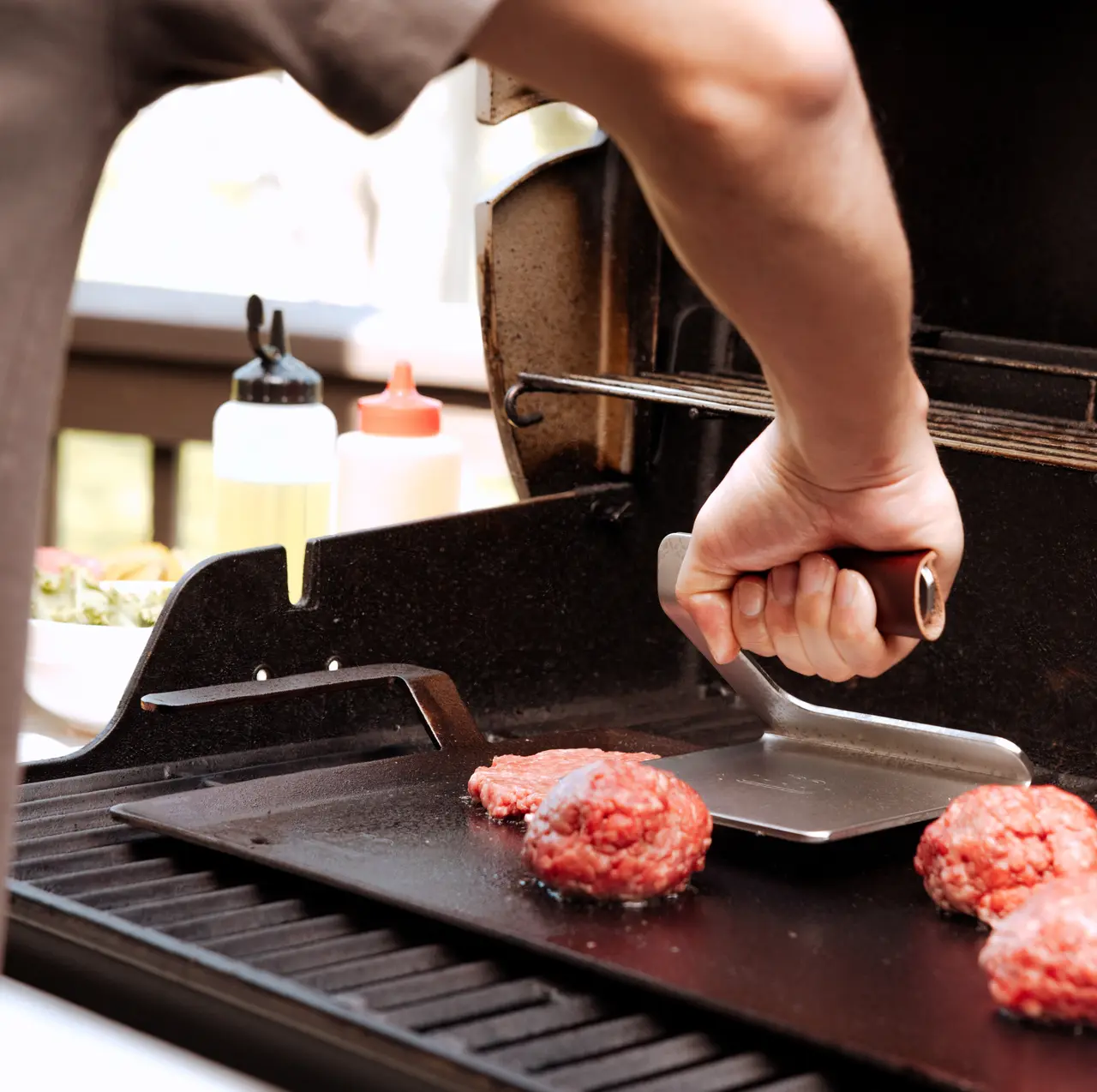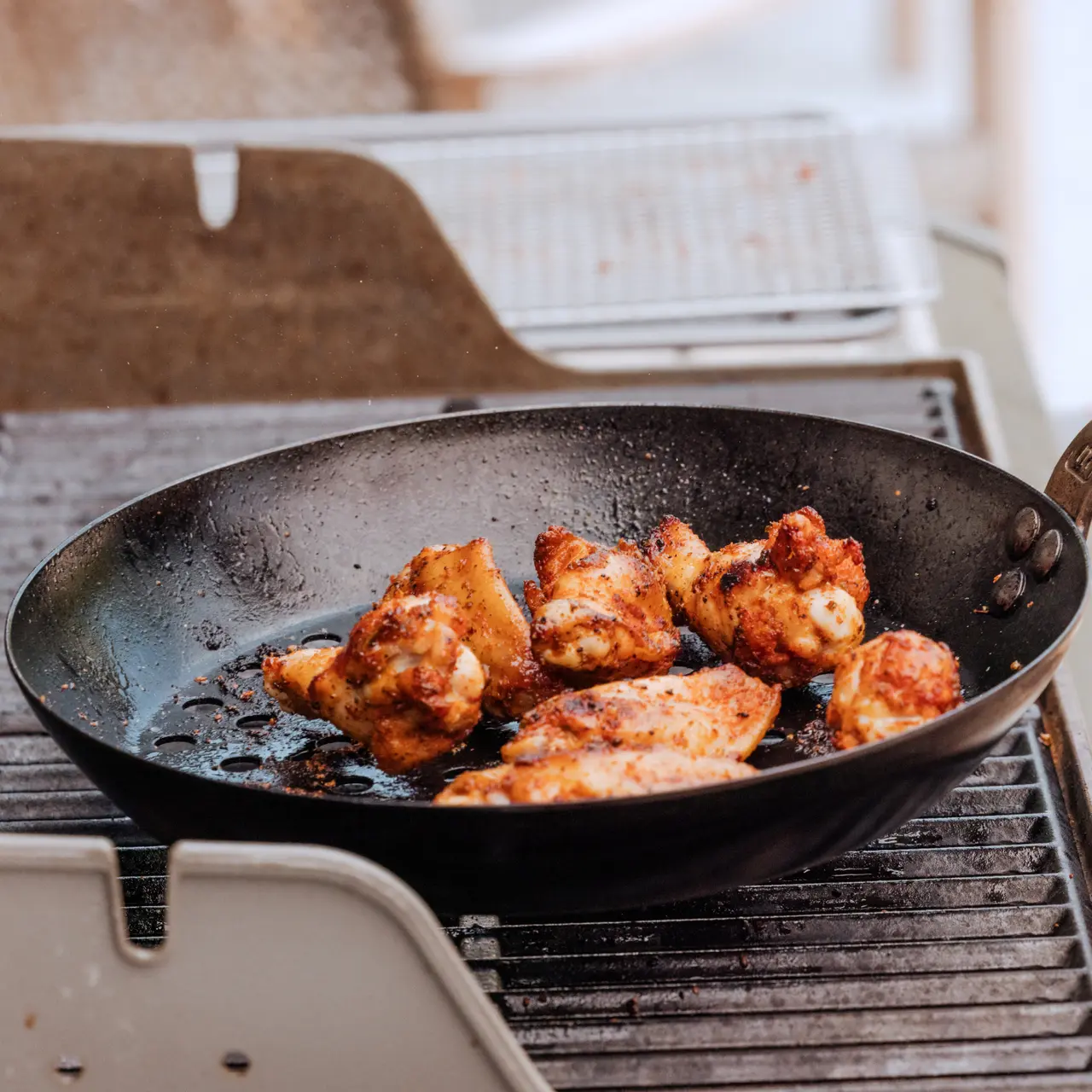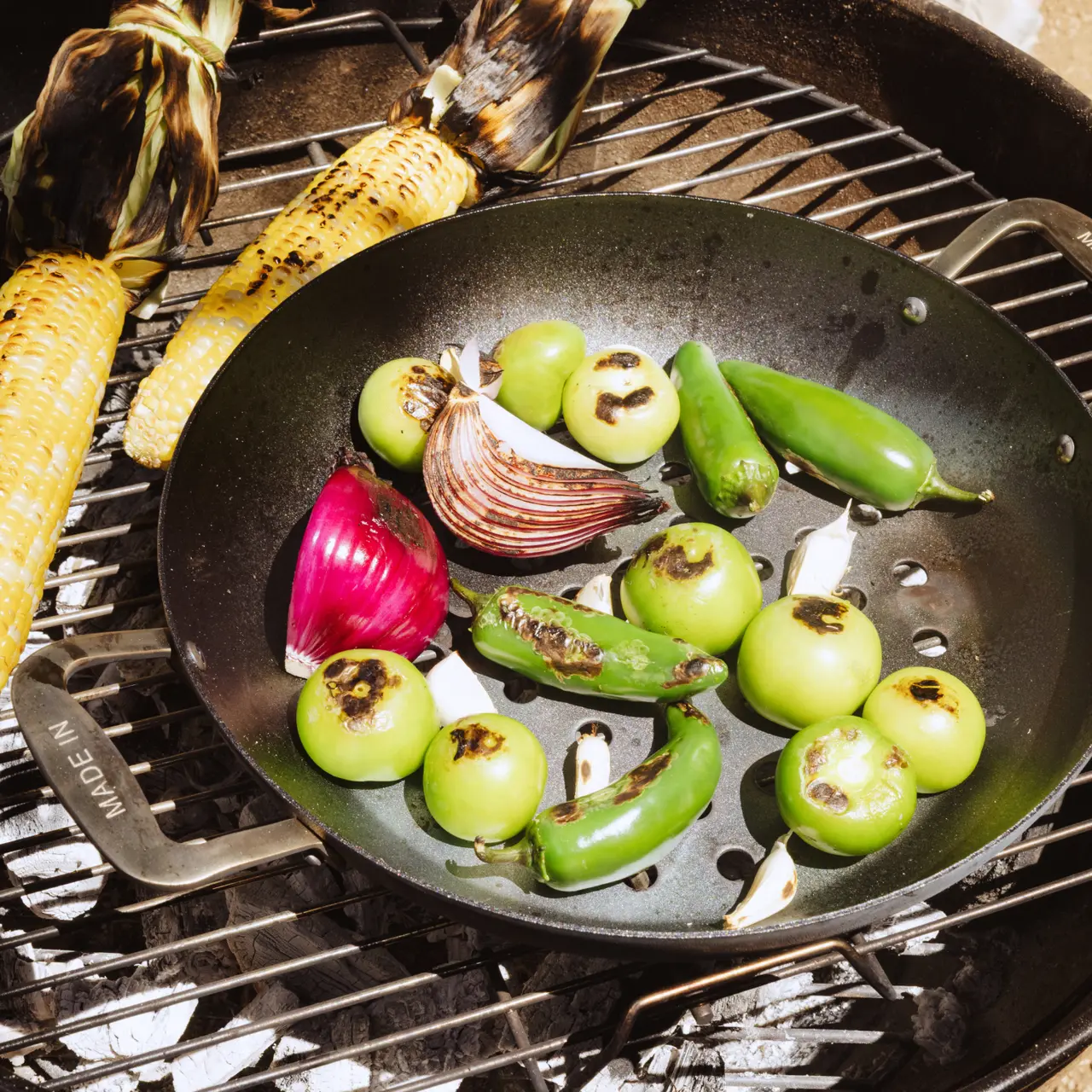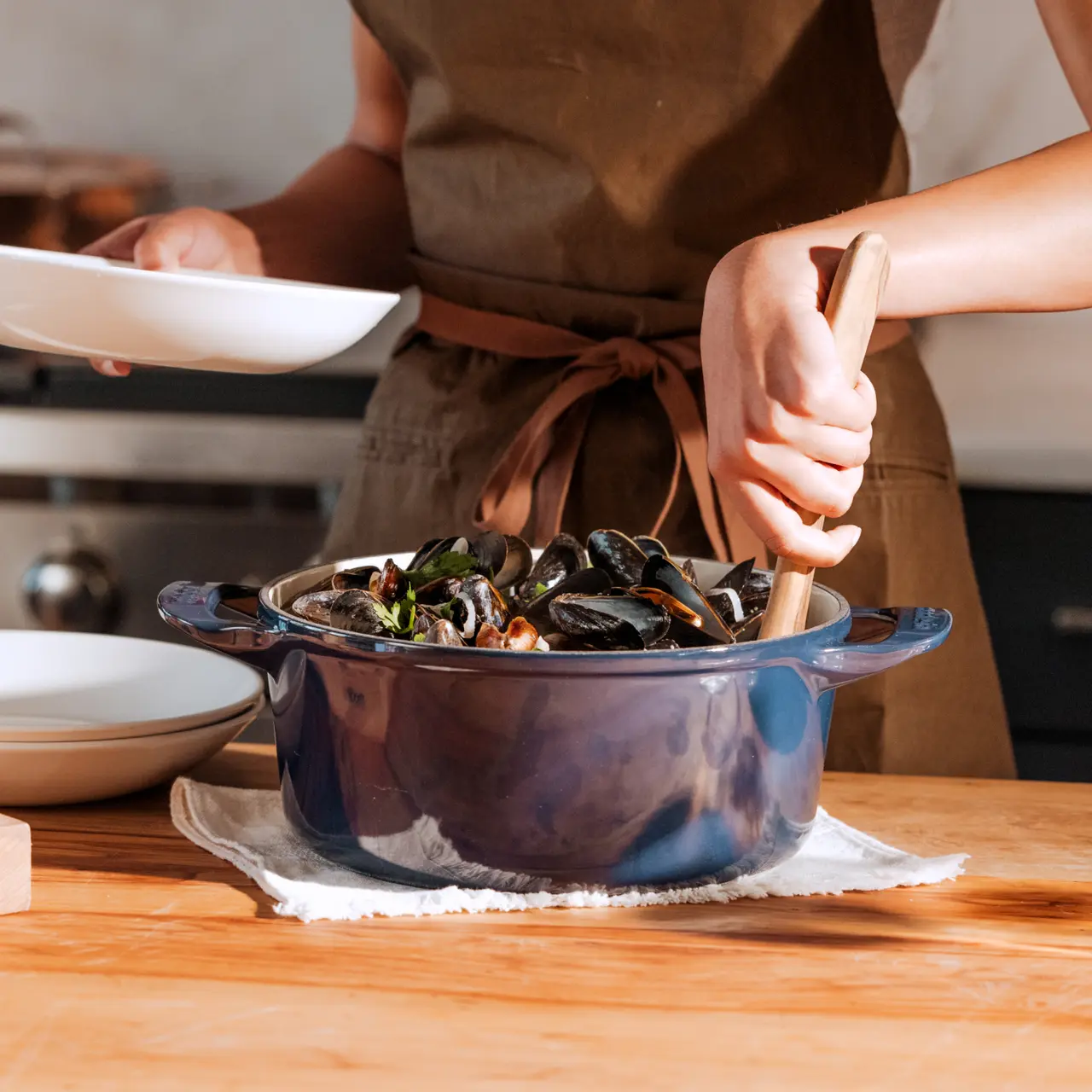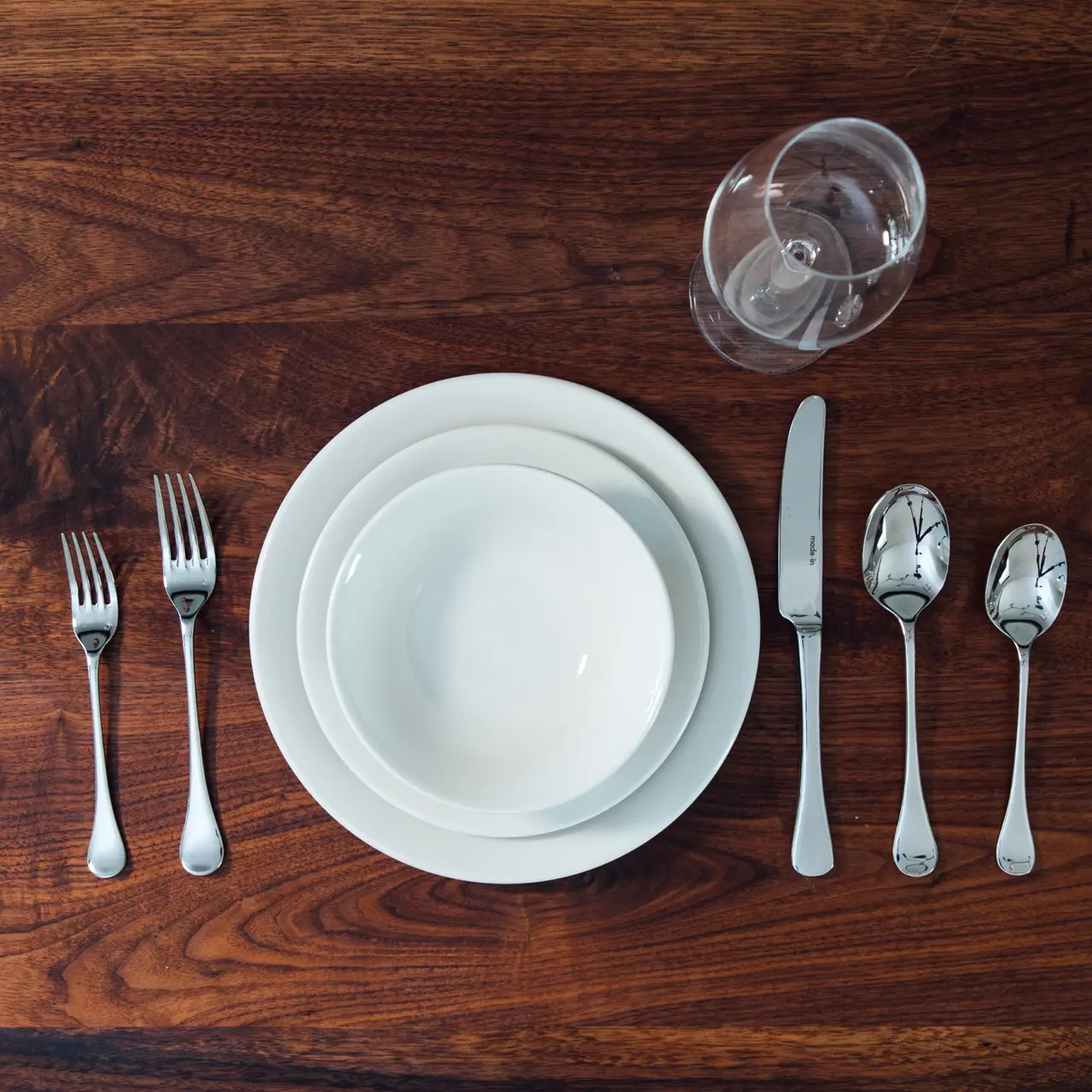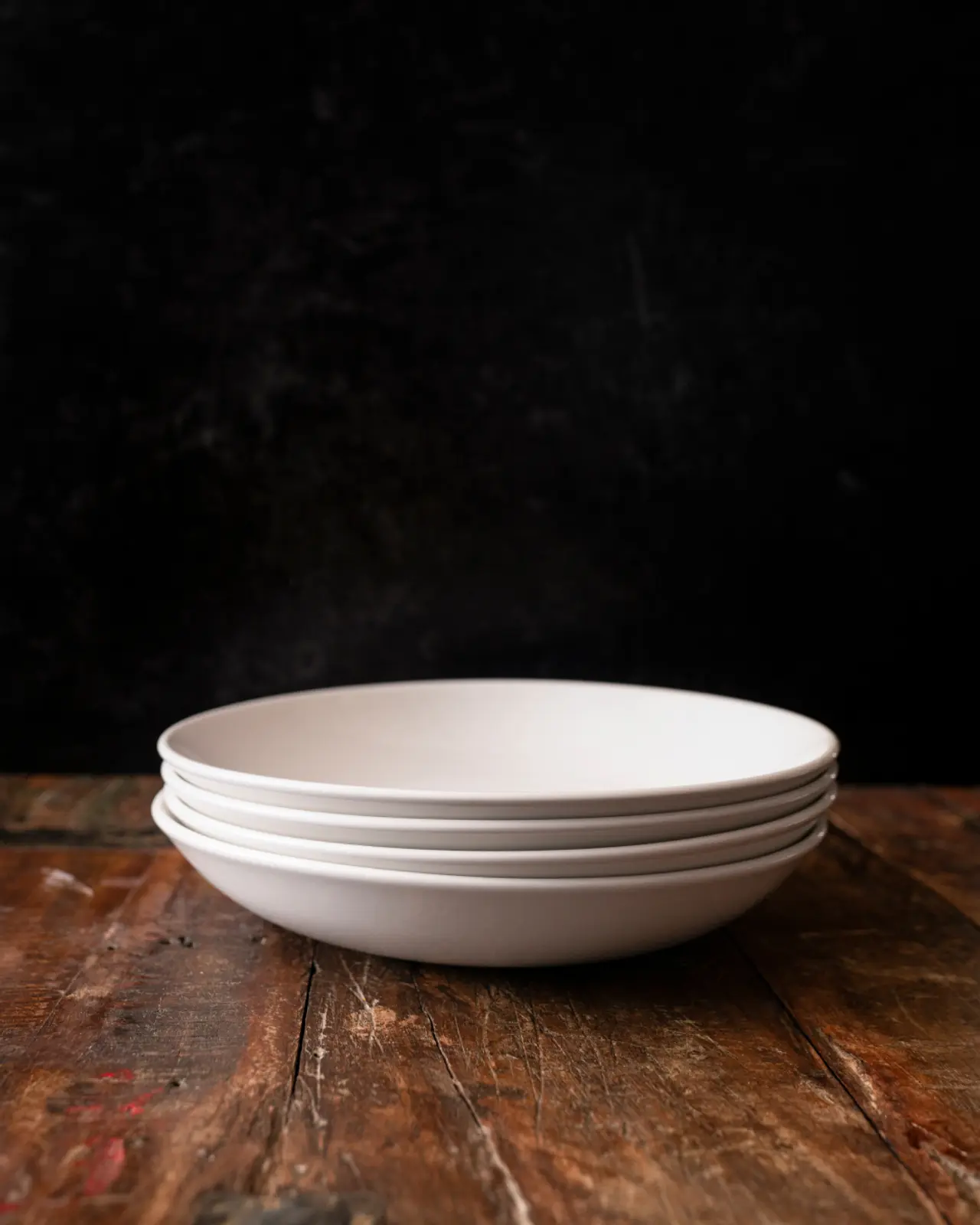“Growing up my parents and I ate Vietnamese food, Texas barbecue, and well, sometimes we had Fuddruckers, too."
Andrew Ho and Sean Wen, the Co-founders of Curry Boys BBQ in San Antonio, Texas, break out into laughter because it’s true. It’s their life. But it’s also surreal. All of it is. This is something they never thought they’d have. Not just the bubblegum pink shack sitting behind them, but the community, the friendships, and of course, the food.
“As an Asian Kid growing up in Houston,” Wen says, “cooking to me just meant helping my parents in the kitchen, and I used to hate it. It was a chore.” He glances over, watching a customer place their order at the window. “But I think the older I got, I started to glamorize the food and beverage industry.”
Ho’s experience was similar, although his time in the kitchen was something he and his father bonded over. Growing up in a Vietnamese household in Houston, Ho found a rich culture of Viet-Cajun cuisine to tap into.
But it wasn’t until Ho brought his family’s Viet-Cajun Crawfish boils to the University of Texas at Austin, that he realized it was something truly unique. It quickly became something of a party-trick—friends would gather and be amazed by the bright, new flavors of his crawfish. “It was something that I grew up doing,” Ho laughs, “it’s always been completely ‘normal’ to me, but people loved it. Like, loved it.”
Viet-Cajun, if you’re not familiar, is a blend of Vietnamese food and Cajun food, one that is almost serendipitously perfect. It arose from Vietnamese immigrants moving to the American South and using flavors and spices from Asia with local ingredients, like crawfish.
“In Houston, Viet-Cajun Crawfish is like the thing,” Wen adds, “I didn’t even know there were just normal Cajun Crawfish Boils ‘cause I only ever really ate Viet-Cajun with garlic butter sauces.”
When college friends begged them to open up a restaurant, and do it full time, Ho and Wen shrugged it off. “That just wasn’t the life we saw for ourselves,” they say, almost in unison.
And yet, life post-graduation wasn’t exactly right, either. Ho quickly found himself at a corporate job. He smiles, “A friend came up to me one day and said, ‘wanna go teach English in Asia?’ And I was like, ‘dude what are you talking about?’ And he said, ‘dude, we’re gonna die in Houston,’ and so immediately, I was ‘like, yes, obviously, let’s get out of here. ’”
Wen visited Ho in Asia several times, and each time, he’d bring up the crawfish boils. “We really should do this crawfish thing,” he’d say, and Ho would just kind of laugh it off. Until one day, they just decided: Fuck it.
“We took the redeye and we had jet lag and we did it out of the truck I’d been driving since high school, and we set up in this parking lot in Mueller and it pretty much sold out instantly,” Ho recalls.
Operating out of Ho’s Ford F-150 he’d been driving since high school, with a portable butane stove and a tailgating tent, they started to sell out everywhere. All over Austin and San Antonio, people couldn’t get enough.
“Then the next thing we know, someone’s like ‘you should open up a restaurant,’ and ‘here’s a space,’ and I remember we signed the lease and we just looked at each other immediately after like, ‘what did we just do?’” Wen laughs.
Sitting with Ho and Wen outside of Curry Boys is akin to being inside their homes: the space is inviting, welcoming, full of fun. Neighbors and friends walk by, stop to chat and then rush to get their order in before they sell out.
“It wasn’t always like this, though,” Wen says, grimacing through the sun. “About six months in at our first spot we sat down and were like, we gotta bootstrap this thing.” Ho adds, “It got so bad that I broke up with my now fiance and was like ‘fuck it I’m going back to Asia.’”
He didn’t. Instead, their key to success was simple, albeit, not too obvious at the time: Make the food more approachable.
“We were selling banh mis and if people came in and they couldn’t read the menu, they’d just walk out,” Wen says, “Or they’d ask for tomatoes on the side and I’d have to be like ‘no, we don’t even have tomatoes.’”
Ho and Wen describe a different San Antonio than we see today, although it hasn’t changed as much as it should. “I could count the number of Asian restaurants on one hand,” says Wen. “But even to this day, people will walk up to Curry Boys, and ask if they can get just the barbecue, because ‘curry’s stinky,’ and just not get it. That’s not an option.”
Like the crawfish, the curry and barbecue work together in perfect harmony. The smoky flavor of the barbecue ties together the heat and spice of the curry, and served together over rice, each bite is the perfect juxtaposition of hearty, comforting, and flavor-packed.
But make no mistake, this is not fusion. “I hate the word fusion,” Wen says, “it feels so forced.”
Ho agrees, “Exactly. We just happen to be Asian, and also love barbeque.” He smiles, “That’s it.”

